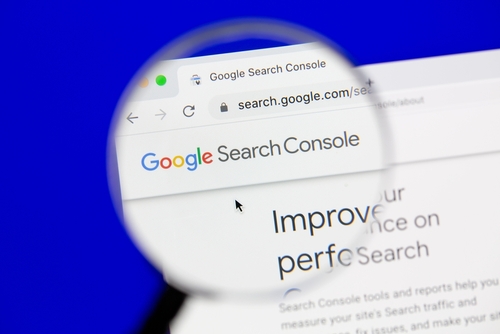Save Money and Improve SEO: Why You Need Google Search Console
As digital marketing becomes more competitive every year, keeping a close eye on your SEO budget is essential to driving meaningful results. Many businesses, big and small, need help with how to get the most out of their SEO investments. Enter Google Search Console (GSC), a free yet incredibly powerful tool from Google, built to help you make smarter SEO decisions.
The digital marketing team at Now Media Group delves into how GSC can be your best friend when managing and optimizing your SEO budget. Call us today at (858) 333-8950 to get started.
What is SEO Budget Management?
SEO budget management is about strategically allocating resources (like time, money, and manpower) to the SEO activities that bring the most value. It’s easy to get lost in SEO costs—content creation, technical SEO fixes, keyword research, and link building can add up fast. Without careful budget management, you risk spreading your efforts thin and missing out on real opportunities.
This is where Google Search Console shines. By using GSC’s data, you can prioritize high-impact tasks, avoid common pitfalls, and direct your budget to areas that deliver the highest return on investment (ROI).
Key GSC Features for SEO Budget Optimization
Google Search Console offers a wealth of data that, when used effectively, can help you make smart budget decisions. Here’s how some of its core features can guide you in budget optimization.
1. Performance Report
The Performance Report in GSC is one of your best assets for SEO budgeting. It provides detailed information about how your site’s pages and keywords are performing in search results. Look at metrics like clicks, impressions, and click-through rate (CTR) to understand which pages and keywords drive the most traffic.
Why is this helpful? Instead of spreading your budget evenly across all pages, you can focus on high-performing pages that already have momentum. Sometimes a small investment to improve the CTR or keyword targeting on these pages can lead to big results, allowing you to stretch your SEO budget further.
2. Index Coverage Report
The Index Coverage Report reveals which pages are indexed by Google and identifies any issues with pages that aren’t indexed. Pages that don’t get indexed won’t appear in search results, which means any time or money spent on them is wasted until they’re fixed. By focusing your budget on addressing indexing issues, you ensure that Google can crawl and rank the content you’re creating.
Fixing these issues can often bring quick wins—indexed pages can start generating traffic and showing SEO results faster than new content.
3. Core Web Vitals
Core Web Vitals metrics, available in GSC, show how well your site meets Google’s user experience standards, focusing on things like loading speed, interactivity, and visual stability. These metrics now play a role in SEO rankings, so improving them can have a direct impact on your visibility.
Budgeting for these improvements can be a wise move if your site has issues with page speed or usability. GSC helps you identify the specific pages that need the most help, so you can focus your budget where needed.
4. URL Inspection Tool
GSC’s URL Inspection Tool allows you to check the status of any URL on your site and get detailed information on indexing, mobile usability, and page errors. If you have underperforming pages, this tool can help diagnose the problem—whether it’s a missing meta tag, poor mobile experience, or something else.
Instead of applying blanket fixes, you can use this data to address precise issues, saving time and budget by avoiding unnecessary updates on pages that don’t need them.
Using GSC Data to Prioritize SEO Spending
When you have a limited budget, you want to ensure every dollar counts. Here’s how to use GSC data to focus on the most profitable areas.
1. Identifying Low-Performing but High-Potential Pages
Sometimes, pages appear in search results and have a decent number of impressions but a low click-through rate (CTR). These are prime candidates for improvement. An SEO boost to the meta title, description, or content quality could bring in significantly more traffic. GSC helps you identify these “high-potential” pages so you can allocate the budget to where it will have the most impact.
2. Optimizing for High-ROI Keywords
Use GSC’s keyword data to see which search terms drive the most traffic and have the highest conversion potential. By identifying high-ROI keywords, you can focus your budget on optimizing for terms that matter most, rather than spreading resources thin across too many keywords.
3. Leveraging Seasonal Trends with GSC
GSC provides historical data that can help you understand seasonal trends, which is especially helpful for e-commerce or service-based businesses. If you know that certain products or services perform well at certain times of the year (e.g., holidays), you can prioritize your budget for these high-traffic periods and maximize your return.
Real-Life Example: Making Data-Driven Budget Decisions Using GSC
Let’s say you’re managing an e-commerce website, and you notice that a few key product pages get a lot of impressions but low clicks. Using GSC’s Performance Report, you decide to allocate a portion of your SEO budget to improve the meta descriptions and titles on these pages, boosting their CTR.
You also see a Core Web Vitals report indicating slow load times for these pages, so you put the budget toward improving page speed. As a result, you start seeing more traffic and conversions without having to create new content.
Avoiding Common Budgeting Mistakes by Relying on GSC Insights
Using GSC can help you avoid these common SEO budgeting mistakes:
- Overspending on Low-Impact Pages: Not every page on your site deserves the same budget allocation. GSC helps you identify pages with low impressions and conversions, so you don’t waste time or money on low-impact areas.
- Ignoring Technical SEO Issues Until They Become Costly: Technical SEO problems can add up over time. By regularly checking the Index Coverage Report and URL Inspection Tool, you can catch and resolve issues before they snowball into major problems that require a large budget to fix.
- Misallocating Budget on Unverified Keyword Trends: It’s tempting to invest in trending keywords based on external tools, but GSC offers real-world data for your site’s specific audience. By focusing on keywords already performing well, you avoid wasting the budget on untested trends.
Tips for Maximizing GSC Data for Budget Efficiency
Here are some practical tips for getting the most out of GSC data to make budget-friendly decisions:
- Set Up Regular SEO Reports and Alerts: Monitor key metrics by setting up regular reports, so you can make timely adjustments as needed.
- Combine GSC with Google Analytics: Use GSC data with Google Analytics to get a fuller picture of user behavior and budget allocation.
- Monitor Metrics Over Time: Track your progress to see if budget reallocations are paying off and adjust accordingly.
Ready to Maximize Your SEO Budget? Get Started with Now Media Group!
Ready to get the most out of your SEO budget? Start using Google Search Console to guide your strategy with data-driven insights. Whether you’re optimizing your highest-traffic pages, addressing technical issues, or identifying top keywords, Google Search Console offers everything you need to make every SEO dollar count.
Need help? Contact our SEO experts at (858) 333-8950 to guide you through the process. Take control of your SEO budget today—start exploring Google Search Console!
